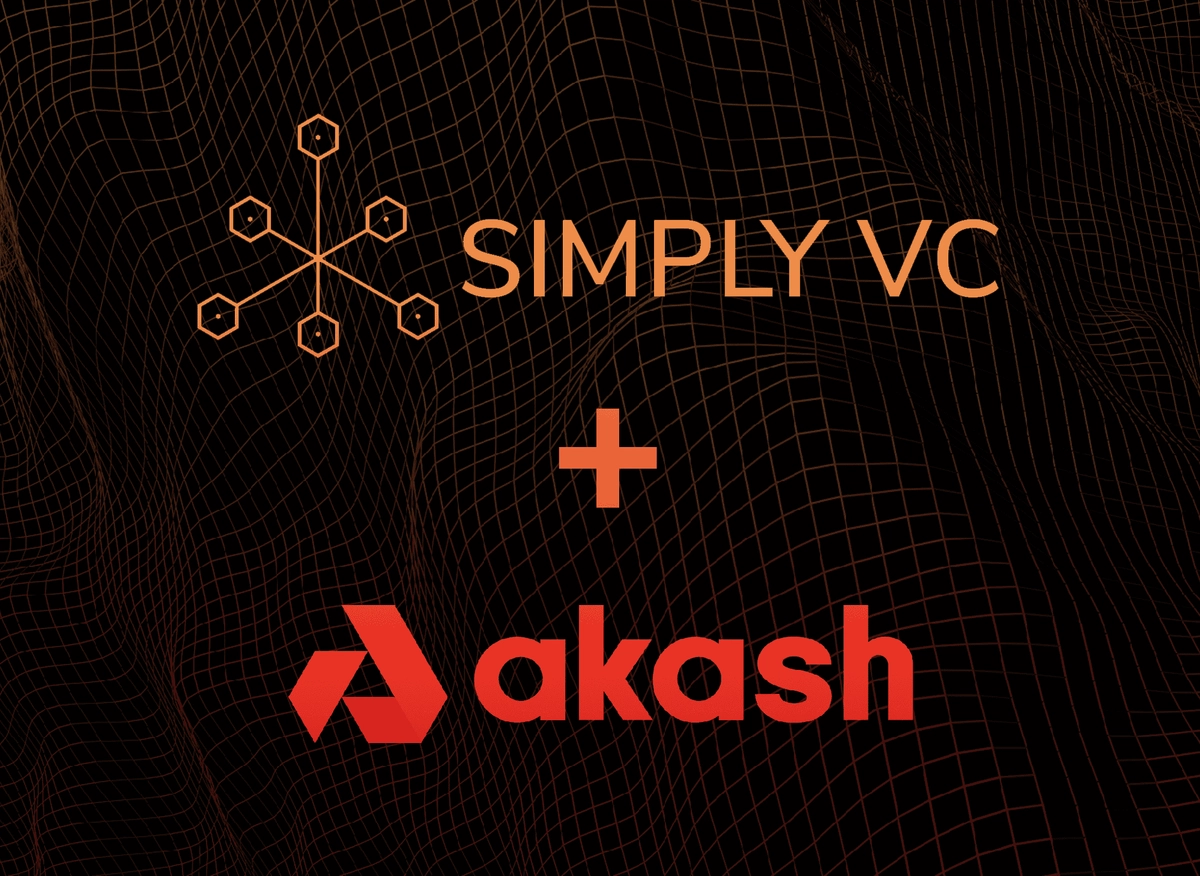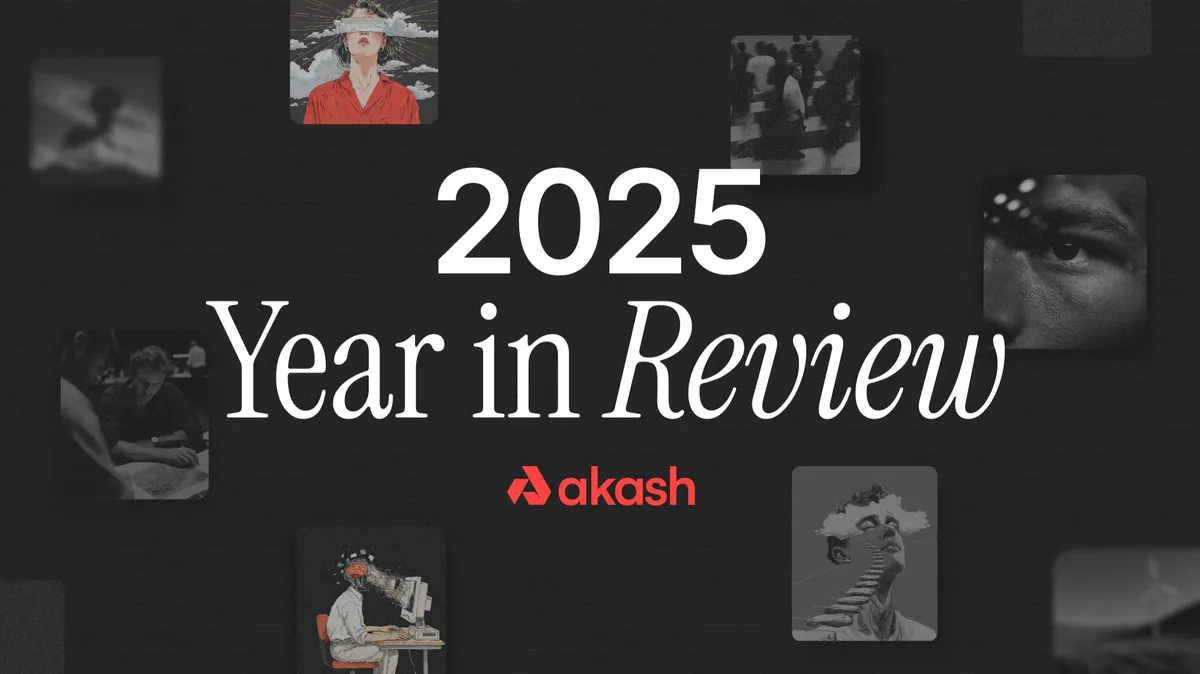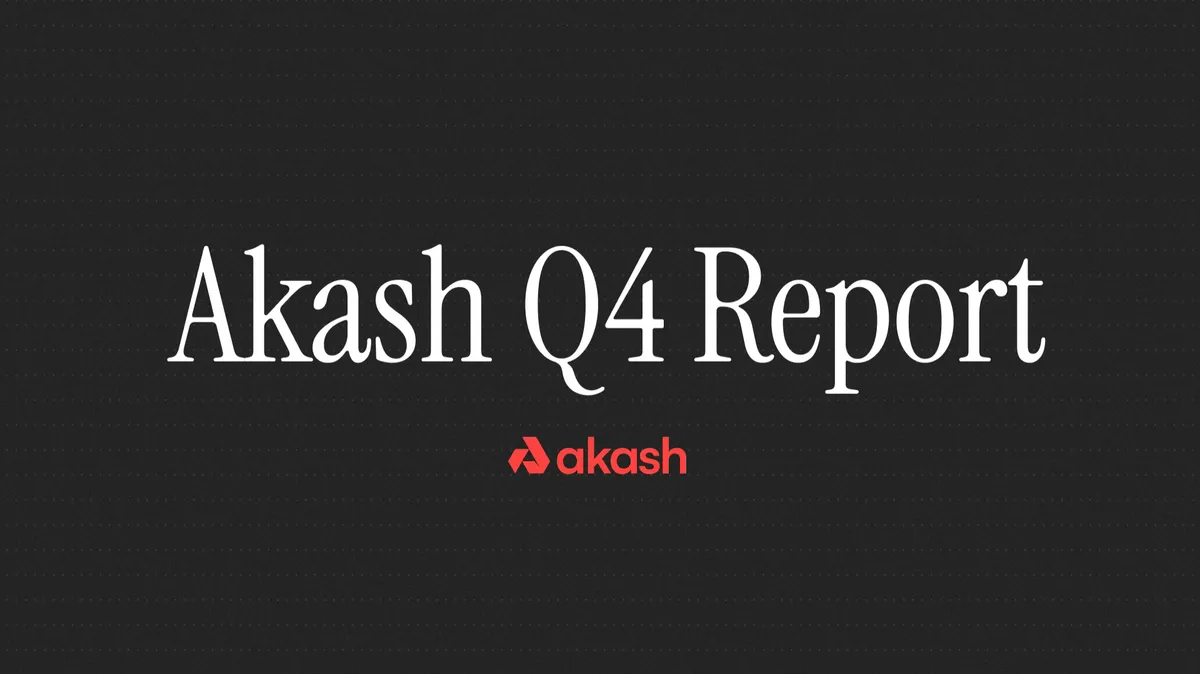
We’re excited to announce that we’ve partnered with Simply VC to help us build the future of the decentralized cloud.
What we value in our partnership with Simply VC is that we share a vision for a truly decentralized cloud. Can a network be truly decentralized if it exists on a centralized cloud? Simply VC doesn’t think so, and neither do we. That’s why Simply VC runs all of their validator operations out of their own Tier 3 data center. That’s also why we chose to partner with Simply to bring their capacity, validator operation, and vision to our cloud marketplace.
As one of Cosmos’s genesis validators, Simply VC has supported the Cosmos ecosystem since its inception. With a veteran team of IT, Security, and blockchain specialists, Simply has been supporting decentralized networks such as Cosmos, Chainlink, Polkadot, and Kusama, for the last 6 years.
We recently connected with Simply VC CEO Matthew Felice Pace, CTO Isaac Zarb, and Blockchain Technology Analyst Daniel Magro, to discuss what makes Simply VC unique and how they envision the future of the decentralized web.
Tell us a little about yourselves and how you came to join Simply VC?
_____
Daniel: I take care of the Infrastructure and DevOps side of Simply VC. I also get involved in development.
Isaac: I’ve been in the IT industry for about 20 years and I’ve been interested in IT since I was about 12 years old. I’ve worked at ISPs, software companies, fintech companies, and consulting companies. I started in networking before moving to security. At Simply VC, I started as a subcontractor, and implemented security. I got into blockchain because the team was doing a lot of work around masternodes at the time. I became interested in proof of stake.
Matthew: I’d like to clarify one thing first. The VC in Simply VC is not venture capital—it stands for virtual currencies. The company was set up in 2015 by our founder who is now very much hands off. He set it up to mine bitcoin here in Malta, and then we met in 2018, technically to work on something else, and over time it evolved into blockchain. I was very interested beforehand. I have a computer science background, and was working towards a PhD that I didn’t complete. I worked on data science, and became interested in blockchain around 2017.
I knew about it before I read “Mastering Bitcoin” in 2015. We were thinking about doing asset management, but shifted completely to just doing tech and delegated proof of stake. We got into Cosmos, and at launch, we were one of the genesis validators.
You’re all from Malta—what in your opinion has made the island such a hot space in crypto?
_____
Isaac: I think it started from fintech about 10 years ago and igaming, internet gambling, and then there was a huge tech community. We have a large number of developers, and network and security guys. People wanted to work in tech and companies found it easy to recruit tech people. We speak english so that helps a lot. The weather is good. Companies come from Europe where the weather sucks.
Matthew: There was a push to try and create a new industry on the island. Since it worked for igaming and fintech, the government decided to try and pitch Malta as blockchain island. They developed legal frameworks as there were very few that existed at the time. They were quite thorough and well designed. But there was a lot of hype. They joined with industry players to produce conferences and tried to get people, as they did with igaming, to move their base to Malta.
Blockchain technology is in a nascent stage. How did you develop the skills necessary to contribute at Simply VC Daniel?
_____
Daniel: I became interested in blockchain 6 or 7 years ago. Later on, Simply VC’s CEO was recruiting at my university, and I’ve been working at Simply VC ever since. I learned along the way. Each time I had a new project, I learned the skills necessary for the project, and over time, I gained holistic knowledge.
How did Simply VC form? Was Simply VC’s vision always to help support the decentralization of the internet or did that develop over time?
_____
Matthew: I think it was always in the mind of our founder. In the beginning, we didn’t really know where we were headed. This is why Daniel mentioned that you learn things as you go based on the project you’re working on. I think that’s the spirit.
Daniel: Our founder is obsessed with decentralization. Decentralization was always a part of the vision.
Isaac: I’m not sure if you’re aware, but we have our own Tier 3 data center which we run our operations from, and we have colocated servers across Europe, and others in Malta. So we do not rely on the cloud at all because we believe that the internet and blockchain should be decentralized. So it doesn’t really make sense if everything is running on Amazon or Google Cloud. Which you must understand completely!
You said you have some colocated servers across Europe. What is the purpose of running them?
_____
Isaac: It’s for sentries mostly, and high availability in case something happens to our node. We have another data center in Malta where we run other sentries which we can turn into validators if we have a complete outage. Malta is small so we could even move our HSMs if we wanted, to the other data center. We want to make sure we’re highly resilient. If something happens, we could literally move the hardware from one place to the other, and everything is set up and can continue functioning quickly.
We actually simulate outages, and a week or two ago, we had maintenance going on in the data center. We missed a few blocks, but I was extremely happy that our main fiber optic link went down for maintenance and everything shifted over nicely. Our automation scripts work well—once you see it working when you need it, you really appreciate it.
It seems that having a background in IT and Security prepared you well for the needs of running a node for a blockchain—you really care about downtime.
_____
Isaac: My experience working for ISPs enforces that downtime is bad. If you’re an ISP and you have downtime, customers are going to complain and you’re going to end up in the newspapers. I come from a background where all my services have to be online. I’ve worked for digital terrestrial TV companies so downtime was impossible. You’d have live football streaming and if you have a second of downtime, people would literally kill you, and come knock on your door!
Matthew: Not any downtime—acceptable downtime. There’s maintenance. Otherwise you would sacrifice security for no downtime. Security is paramount, and then downtime.
Do you feel that specializing early on in blockchain infrastructure has given Simply VC a competitive advantage to other data center operations stepping into the space? If so, why?
_____
Matthew: The space was very young, and when it moves so quickly, the earlier you can get in, the better. You get a competitive advantage because personal documentation for these processes have not been developed yet. You have to learn as you go and it’s a matter of putting the hours in. Because everyone on the team was thrown into the deep end every time, it gave us the mental fortitude and clarity to move forward. It’s very easy to get lost, but when you do it over and over, you learn. For example, I would say Daniel is a blockchain native. In the same way as people are internet native, which maybe my parents weren’t.
You specialize in supporting decentralized networks. What complexities specific to those networks are the most challenging?
_____
Isaac: It doesn’t make it more difficult—short block times make downtimes very important and high availability is more of an issue. With a blockchain, you have a reputation to keep and the agility of the protocol pushes you to be better. Blockchain software is actually less complex.
Matthew: It’s a little different because it’s a community effort and adjustments happen as a group to identify the right parameters. The interesting thing that I see in blockchain is that it forces communication. In a centralized environment, communication breaks down very quickly because you can do things by yourself. You can silo yourself and do it alone.
It’s alright to install and run a system but there are lots of potential issues upgrading a decentralized system. If you take Cosmos Hub for instance, the challenges that come from agreeing on what to upgrade because the software is decentralized is not something you have in a centralized system.
Being on the infrastructure side of things, where do you see the biggest need for growth in blockchain?
_____
Daniel: With something like Cosmos for example, you have the top 5 validators controlling around 32% of the network. I personally think that’s a big problem. The network is set up such that it can be decentralized but the players that are in it force it not to be that way.
Matthew: Apart from the growth of DeFi, it is concerning that we are building decentralized systems assuming that they are going to be decentralized. We need to develop systems that enforce decentralization. It’s the law of nature—if you can do it, you will do it.
Daniel, you’ve been a very active member of The Akashian Challenge community, which we are incredibly thankful for. Could you share a highlight from your experiences with Phase 1 or 2 so far?
_____
Daniel: The proposal from Phase 1 was quite interesting for me. Lots of discussion and opinions from all members. I also liked the second proposal which was sort of a trick proposal. I enjoy all the new faces and that a lot of people new to the space joined. It’s good to see new people getting involved. I’m looking forward to seeing what solutions people come up with to get the most bids and leases.
What kind of a rig are you running for the challenges?
_____
Isaac: For the validators, we’re using a virtualized shared server of our own and for the workloads we have dedicated hardware which we prefer for the workloads. We tested out through the challenges, but at the moment, we’re only using the virtualized solution. The difference between our hardware and cloud hardware is that we don’t over provision our servers. We never go over 30% to 40% capacity whereas servers on the cloud could be over-provisioned by 20 to 30 times.
Daniel: We’re using 8 cores for our validator, 32 gb of ram (20 gb of ram to the provider operations), 200 gb hard drive. We have GPU servers ready to dedicate to Akash’s mainnet.
What excites you about Akash?
_____
Matthew: Our vision is of a decentralized future and it has to start with Akash. In today’s world, if we’re going to move away from large conglomerates, which used to be good because they innovated, we’re going to need tools like Akash. I’m excited to partner.
Daniel: Akash is exactly in line with our beliefs of truly decentralizing the cloud, and giving power back to the little guys. I believe it’s the way forward.


